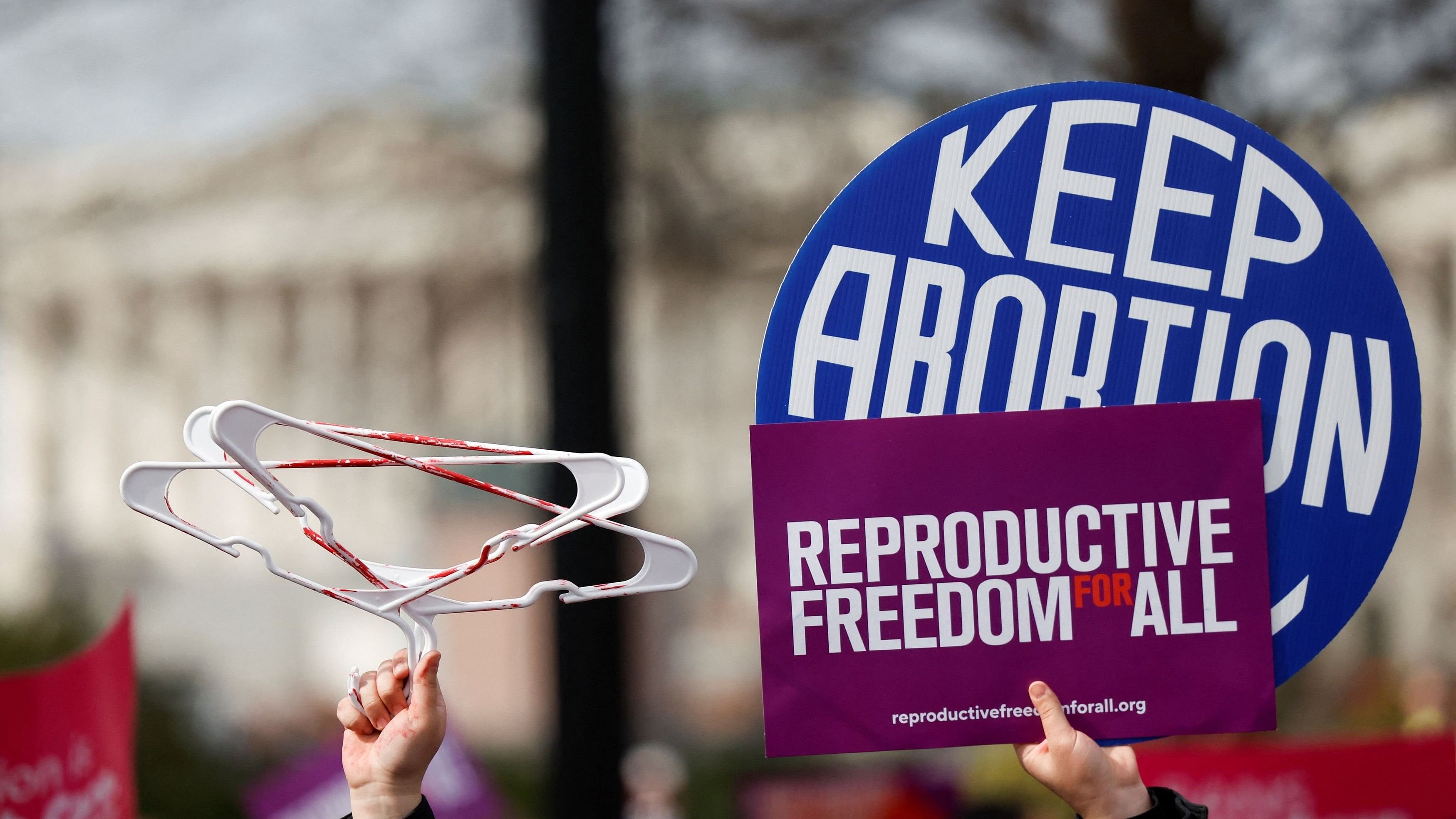
Representative image of demonstrators for abortion rights.
Credit: Reuters Photo
Florida's top court on Monday upheld a Republican-backed law that bans abortion after 15 weeks of pregnancy - a decision that allows a stricter six-week ban to take effect - but also cleared the way for voters to decide whether to amend the state's constitution to establish a right to abortion.
The Florida Supreme Court's ruling upholding the existing ban - a victory for Governor Ron DeSantis and other Republicans - came in a challenge filed by abortion provider Planned Parenthood and others.
The court also rejected a bid by Ashley Moody, the Republican state attorney general, to keep the abortion rights constitutional amendment off the Nov. 5 ballot.
The constitutional amendment proposal's backers in January secured the required number of signatures to put it on the ballot. It would ban laws that "prohibit, penalize, delay or restrict abortion before viability or when necessary to protect the patient's health, as determined by the patient's healthcare provider."
Abortion is illegal after 15 weeks in Florida under a law signed by DeSantis in 2022, two months before the US Supreme Court overturned its landmark 1973 Roe v. Wade ruling that had legalized abortion nationwide.
DeSantis in April subsequently signed an even stricter ban passed by the Republican-controlled state legislature starting at six weeks of pregnancy. That measure included "trigger" language making the six-week ban take effect one month after the state Supreme Court affirmed the earlier 15-month ban. Six weeks is before many women know they are pregnant.
Abortion access is now almost non-existent in Southern US states, with most having imposed sweeping Republican-backed restrictions.
The Florida Supreme Court in a 1989 decision had said the state constitution's right to privacy included a right to abortion. At that time, a majority of the high court's justices had been appointed by Democratic governors. The court now is viewed as one of the most conservative in the United States.
All seven of its current justices were appointed by Republican governors, including five by DeSantis, an outspoken abortion opponent who mounted an unsuccessful run for the Republican nomination to challenge Democratic President Joe Biden in the Nov. 5 U.S. election.
Moody sued Floridians Protecting Freedom, the abortion rights group sponsoring the ballot measure, and had argued that the proposal was impermissibly vague and misleading.
The Florida Supreme Court rejected Moody's arguments, writing that "the broad sweep of this proposed amendment is obvious in the language of the summary. Denying this requires a flight from reality."
The Florida Supreme Court's members all were appointed by Republican governors.
Abortion rights advocates have sought to put the matter directly to the voters. Abortion rights measures have prevailed everywhere they have been on the ballot since the Supreme Court's decision.
Constitutional amendments in Florida must pass with at least 60% of the vote, a larger percentage of the vote than any statewide abortion measure has yet won.
"We are ready to fight and win Amendment 4 this November, ensuring the well-being of present and future generations," said a statement from Andrea Mercado, the executive director of Florida Rising, which supports the ballot initiative.
Last November, voters approved by a margin of 57% to 43% a constitutional amendment enshrining abortion rights in Ohio, a state that in the 2020 election voted for Republican Donald Trump by a margin of 8 percentage points over Democrat Joe Biden in the presidential election. In 2020, Trump topped Biden by 3 percentage points in Florida.